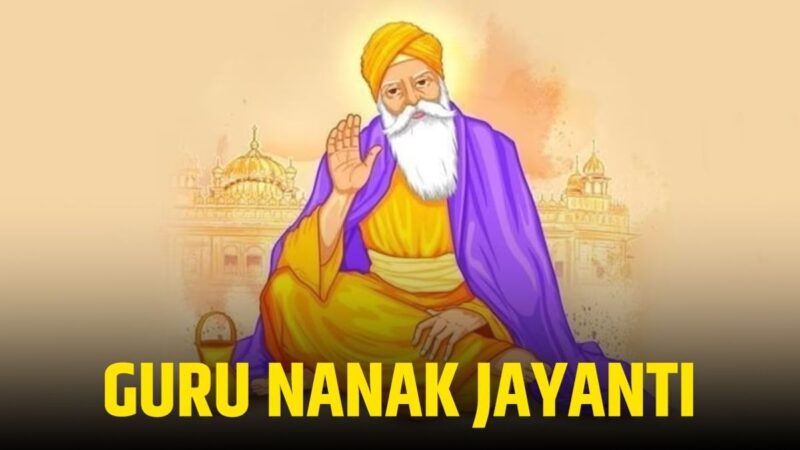
Guru Nanak Jayanti, also known as Guruparb or Prakash Utsav, stands as one of the most sacred festivals in Sikhism, celebrating the birth anniversary of Guru Nanak Dev Ji, the founder of Sikhism and the first of the ten Sikh Gurus. In 2025, this auspicious occasion falls on Wednesday, November 5, coinciding with Kartik Purnima, the full moon day of the Hindu month of Kartik. This year marks the 556th birth anniversary of Guru Nanak Dev Ji, who was born in 1469 in Rai Bhoi Ki Talwandi, now known as Nankana Sahib in present-day Pakistan.
Historical Significance and Guru Nanak’s Life
Guru Nanak Dev Ji was born to Mehta Kalu Chand and Mata Tripta Devi in 1469. From his early childhood, he displayed profound spirituality and courageously questioned social hierarchies, meaningless rituals, and religious divisions that plagued society. Throughout his life, Guru Nanak undertook extensive travels across India, Tibet, and Arabia, spreading his revolutionary message of equality, compassion, and devotion to one God.
His philosophy, encapsulated in the sacred phrase “Ik Onkar” (There is One God), emphasized that all human beings are equal before the divine creator, regardless of caste, creed, gender, or social status. Guru Nanak composed 974 hymns that were later included in the Guru Granth Sahib, the holy scripture of Sikhism. He established Kartarpur Sahib and passed away in 1539, leaving behind a timeless legacy of peace, service, and devotion.
Core Teachings and Their Contemporary Relevance
Guru Nanak’s teachings revolve around three fundamental principles known as Naam Japna (meditation on God’s name), Kirat Karni (earning an honest living), and Vand Chakna (sharing with others). These principles continue to guide millions of Sikhs worldwide in leading meaningful and righteous lives.
Key teachings include:
Oneness of God: Guru Nanak emphasized that there is only one formless, genderless divine creator accessible to everyone.
Equality and Rejection of Caste System: He vehemently opposed social hierarchies based on caste, race, or gender, promoting the revolutionary idea that all humans are equal in God’s eyes.
Selfless Service (Seva): Guru Nanak taught that serving humanity without expectation is the highest form of devotion.
Honest Living: He stressed the importance of earning one’s livelihood through truthful and ethical means.
Equality of Women: During a time when women faced severe discrimination, Guru Nanak advocated for their empowerment and equality with men.
In today’s world, marked by religious conflicts, social inequalities, and materialism, Guru Nanak’s philosophy remains profoundly relevant, offering a blueprint for fostering inclusivity, respect, compassion, and universal brotherhood.
Celebrations and Rituals
The festivities for Guru Nanak Jayanti begin two days prior to the main celebration with several significant rituals:
Akhand Path: A continuous 48-hour non-stop recitation of the Guru Granth Sahib commences in gurdwaras. This uninterrupted reading creates a spiritual atmosphere and is performed by relay readers who ensure seamless transitions without any breaks.
Prabhat Pheris: Early morning devotional processions begin before dawn, with devotees walking through neighborhoods singing hymns and reciting prayers.
Nagar Kirtan: On the eve of Guruparb, vibrant processions fill the streets, led by the Panj Pyare (Five Beloved Ones) dressed in traditional blue robes and turbans, carrying swords. The Guru Granth Sahib is carried in a beautifully decorated palanquin (palki) adorned with flowers and embroidered cloth. Devotees sing devotional hymns accompanied by musical instruments like harmonium, tabla, and cymbals, while Gatka (Sikh martial arts) performances showcase the community’s rich cultural heritage.
Langar: The community kitchen, or langar, represents one of the most important traditions initiated by Guru Nanak in the 1500s. It serves free meals to everyone regardless of religion, caste, or social status, embodying the principles of equality and selfless service. People from all backgrounds sit together on the floor, sharing simple vegetarian meals, breaking down social barriers and fostering unity.
Celebrations at the Golden Temple
The Golden Temple (Harmandir Sahib) in Amritsar, Punjab, becomes the epicenter of Guru Nanak Jayanti celebrations. Thousands of devotees from across India and around the world converge at this sacred shrine, which is beautifully illuminated with lights, flowers, and diyas. The atmosphere resonates with hymns, prayers, and kirtans that continue throughout the day and late into the night.
The celebrations at the Golden Temple are characterized by their grandeur and spiritual intensity, with devotees taking holy dips in the Amrit Sarovar (sacred pool) and participating in continuous prayers and community service.
National Holiday and Public Observance
Guru Nanak Jayanti is recognized as a gazetted national holiday in India. On November 5, 2025, schools, banks, and stock exchanges remain closed in many states, particularly in North India including Punjab, Haryana, Chandigarh, Delhi, Uttar Pradesh, Maharashtra, and several other regions.
According to Drik Panchang, the auspicious timings for Guru Nanak Jayanti 2025 are:
-
Purnima Tithi Begins: 10:36 PM on November 4, 2025
-
Purnima Tithi Ends: 6:48 PM on November 5, 2025
-
Brahma Muhurat: 4:52 AM to 5:44 AM
Global Impact and Modern Celebrations
Today, Guru Nanak Jayanti is celebrated not only in India but across the globe—in countries like Canada, the United Kingdom, the United States, and Australia—reflecting Sikhism’s worldwide presence. Gurdwaras and Sikh community organizations hold special events emphasizing peace, unity, and spiritual growth, with thousands participating in Nagar Kirtans and langar seva.